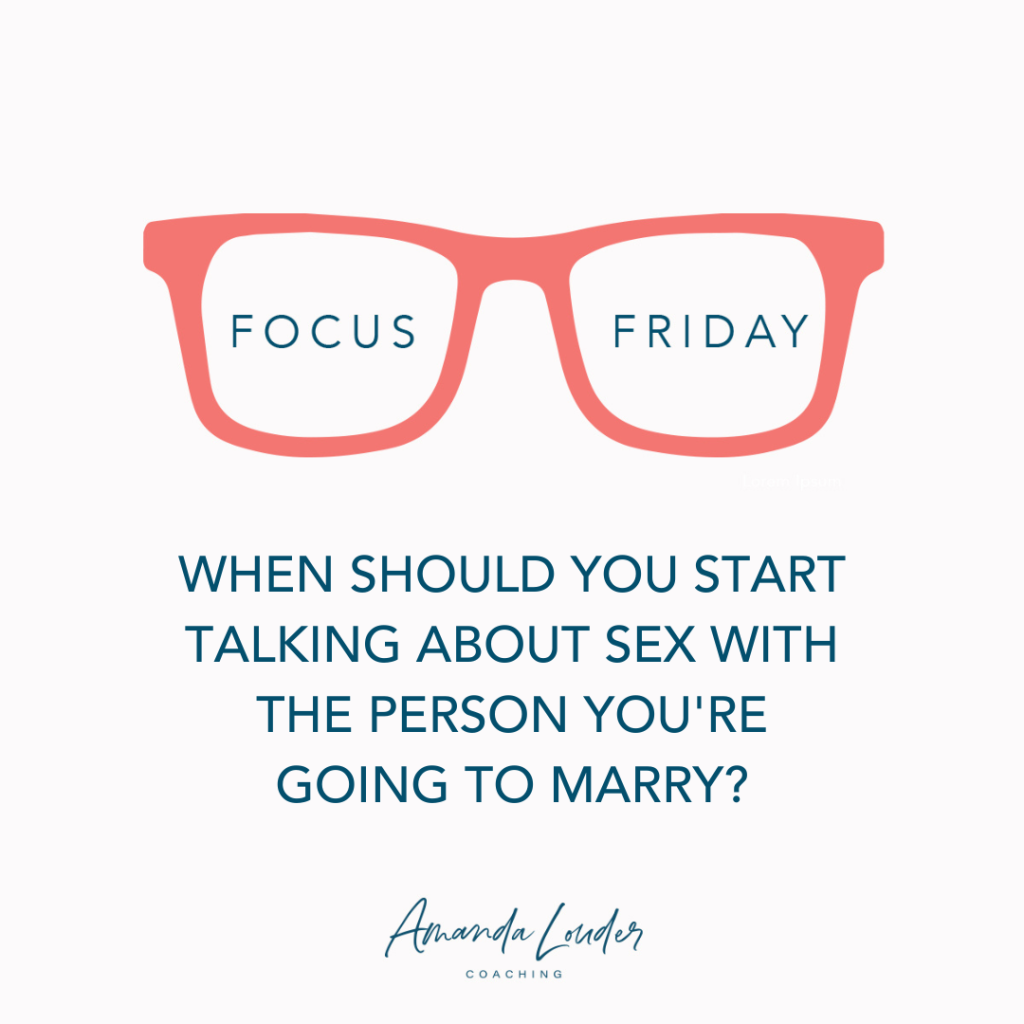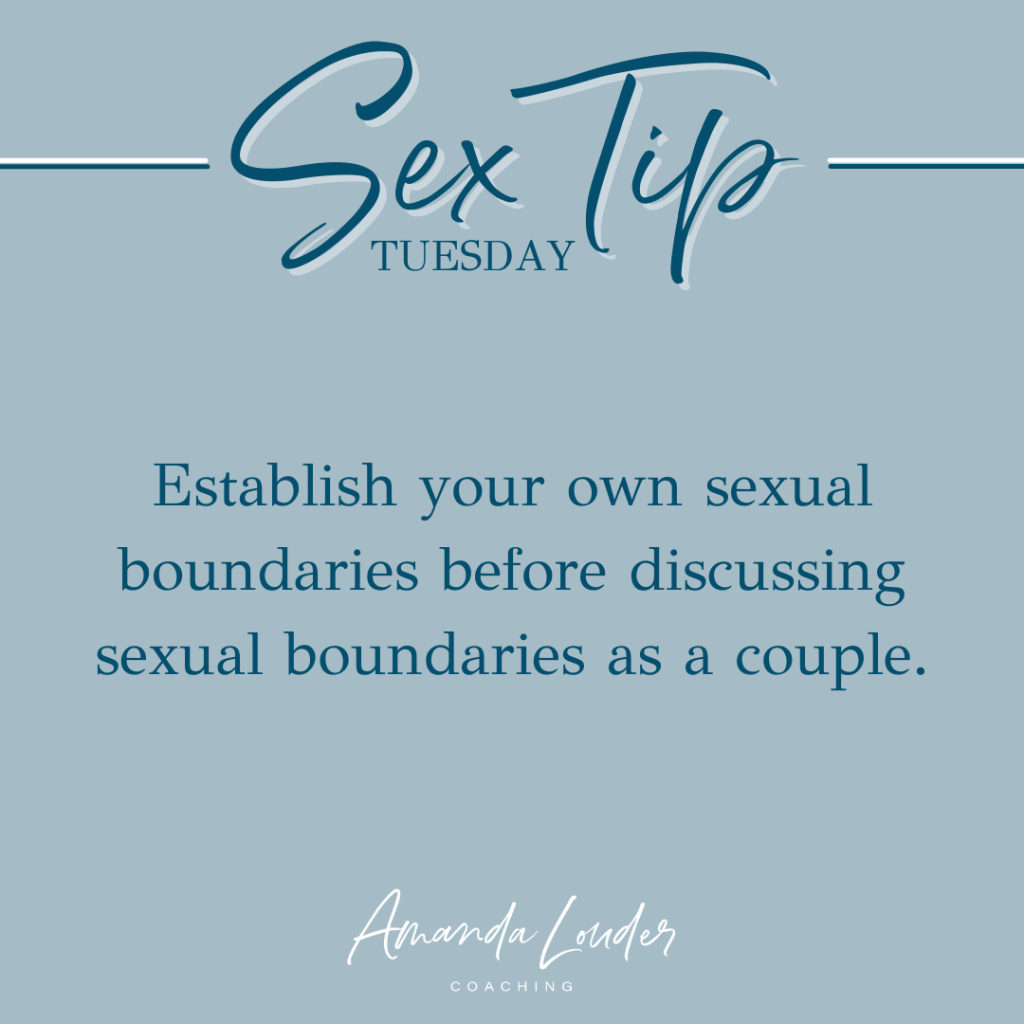
This is part two of an amazing interview I did with fellow life coach Julie Balkman. This week we’re talking more about our young adults and how they are really struggling in dating and moving into relationships and into sexual relationships. Whether you’re a young adult, either single and dating or newly married or you have young adults, even if you have been married a long time, I think you’re going to find some really good, valuable insights into why things are the way they are for you in this episode. If you didn’t hear part one, I would recommend listening to that one first here.
Julie Balkman, founder of the 100 Interviews Project and expert panelist for the LDS dating app Mutual, is a dating expert and certified life coach who helps young adults get out of the dating game and into a real relationship that lasts. The dating game often continues into engagement and marriage, so she also works with newly married couples, helping them build a relationship based on real love and intimacy. With eight years experience working with hundreds of young adults (single and married), she has seen firsthand the desire and need for clear answers, actionable steps, and real results. You can find her at juliebalkmancoaching.com and @lifecoach.julie on Instagram.
Show Notes:
Follow Amanda on Facebook and Instagram.
Join Amanda’s Private Facebook Group.
Show Summary:
Amanda: Hey everyone. Welcome back to the podcast. I hope you enjoyed part one last week. If you haven’t listened to that yet, you’re definitely going to want to listen to that before you start today’s episode, and as just a reminder, I have a couple of my summits available on my website under events and coaching available under Get Help.
If you want more information about the things that I do, my website and Instagram are the best place. Amandalouder.com and Instagram @amandaloudercoaching
All right, let’s get to part two of today’s interview.
What’s the next group?
Julie: Next group is sex training of the brain and that’s the pornography group.
Amanda: Hmm. Okay.
Julie: Uh, there’s various levels and I think that it’s difficult to label or lump any of anyone who’s viewing porn on any level into like one category. But I do believe that it’s important to differentiate between training your brain to know what sex is based on pornography experiences versus experiences with a real human.
Amanda: Yeah.
Julie: I’ve done a lot of reading and studying about this and interviewing various people who struggle with pornography and I do believe that porn is a way to train your brain. And you’re saying to yourself, this is, you’re saying to your brain, this is what sex is. So that when you have the opportunity to engage with a real human, your brain does not respond in the same way.
Amanda: Yeah. Uh, and so there’s a really unfortunate side effect of porn is that, I mean, I don’t love porn in any way, shape, or form, but that it’s this fantasy that people are putting on a screen. And men and women, because women watch porn too, are thinking that that’s the way it’s supposed to be. And what I tell clients all the time is, real sex doesn’t look like porn.
Julie: Yeah. And just the way that it happens with, um, you know, one hand on a mouse and one hand on a body part. And that your brain learns like the response to that versus the real thing. Along those lines is a lot of questions and how to tell someone that you view porn, how to talk about it. How to share that information and what to share. Why would you want to share?
Then also those who are like, how do I ask, how do I ask? Is this, you know, is this person I’m dating viewing porn and does it matter to me? What does it mean me?
Amanda: They are. Well, not all. I mean, just assume that they’re, I think it matters on frequency. I think it matters, you know, that makes a, like if they’re viewing porn once every few months, that’s a very different than viewing porn every single day.
Julie: And what type of porn.
Amanda: Yeah, absolutely. Absolutely. I mean, I think you just have to kind of assume in this day and age that people are, have seen it or you know, watch it.
Just what is the frequency of that? What do they find appealing about it? Why do they do it? I think that’s important.
I think we’ve been trained to believe that porn destroys marriages and it destroys families, and it absolutely can. I’m not saying that it can’t, but it doesn’t have to. I think it’s much more likely to happen if that’s what you believe will happen from it.
I think more problematic than even the porn viewing is lying about it.
Julie: Yes, absolutely. And I believe that in a marriage and a serious committed relationship, pre-marriage, there are no secrets except for maybe what you’re getting them for Christmas.
Amanda: Yeah. Surprises are different than secrets.
Julie: Yeah.
Amanda: Yeah. I think you need to be talking. If you are in a serious, committed relationship with someone, you need to be talking about all of it. People always ask me like, when should I start talking about sex with the person that I’m gonna marry? I’m like, um, I would not be making decisions about marrying them until you’ve had frank conversations about sex, because it makes a big difference.
Julie: Yes, I agree. Open and honest.
Um, I have a question for you, Amanda. What would you tell someone who said, I don’t want to date or marry anyone who has anything to do with porn?
Amanda: That’s totally your prerogative, but I think that you’re going to be hard pressed to find someone who doesn’t.
Julie: Okay. Good answer.
Amanda: And so what do you want to do with that information? You know, I know that, um, so I’m involved in, you know, a lot of different, like Facebook groups and stuff, and there are women in there that are like, you know, my ex-husband had a pornography addiction, and so I will never be with someone who looks at porn and I get that, but I think, okay, well what are you defining as a pornography addiction? Because I think we’ve been trained to use that word and most pornography viewing is not an addiction.
It definitely can happen. There are people who look at pornography and then want to bring it out about in real life and go seek out hookers and different things. That is the rarity, not the norm. Most people who look at porn are good people who actually, most of them don’t wanna be looking at it, at least within the church. And for most, it’s a coping mechanism. So can we look at different ways to learn how to cope better that’s more connecting for the two of you. Rather than disconnecting and open and honest communication about it.
I don’t think you need to be your partner’s accountability person. But I think you need to be able to have open conversations about it because when shame goes into hiding. That’s where it comes in.
And when you can have open and honest conversations about it, then I think it brings it out of hiding.
So like, um, I’ve talked about this previously on the podcast, like my oldest son looked at pornography and when I would like, you need to go see the bishop. This is horrible. Like treated it like that, like it became more pervasive.
And when I came in like, oh, okay, what do you wanna do about that? How does that make, like what, what were you feeling that led to you looking at porn? How often are you looking? And we, I was really compassionate and curious. It got way better and we were, and this is my son, not just my partner. Right. But I mean, my partner and I have conversations, but it’s open, honest communication with no shame, just compassion and curiosity.
And we get to the heart of the issue rather than keeping it hidden and away.
Julie: Right. Oh, I love that you engaged that, once again, responsible decision making contributes to confidence. And you asked him, what do you wanna do about it?
Amanda: Yeah. Because he needs to decide. Not me.
Julie: Ownership. I love it.
Yes. We’re back to confidence and responsible and sexy.
Amanda: Yes. Always. Always. Okay. What’s our next group?
Julie: Our next group is the ones who are active sexually.
Amanda: Okay.
Julie: And, um, you know, within the Christian LDS values, there’s a lot of what will people think of me? Will someone want to date me if I’ve had sex before?
There’s also, an interesting phenomenon of those who are having sex regularly, but wanting to marry a virgin.
Amanda: Interesting.
Julie: And, and they even have the goal of getting married in the LDS temple someday. Uh, and that’s, I think that I see a, like they’re compartmentalizing the sex act away from the emotional connection and their values.
Amanda: Oh, a hundred percent.
Julie: And that there’s an immature way of like seeing their sexuality and then also understanding, not only the mechanics and body, but also the mindset of the opposite sex. There’s a low amount of responsibility when it comes to consent and condoms.
Amanda: Hmm. Say more about that one.
Julie: When I ask someone, is talking to me about being sexually active, I ask, I mean, that’s the first thing is consent and condoms. Because I’m all about, uh, freedom and joy in my coaching. And, so that’s where I go. And then also a part of freedom and joy is responsibility.
And that keeps coming up in our conversation today. And so I ask them, are you ready and prepared to be a parent? Can you support a family? Can you take responsibility for a child, for multiple children? And they seem quite shocked and like sort of unaware, that would never happen to me. And yet they’re doing nothing to prevent it.
Amanda: Yeah. Oh, wow.
Julie: And I think that this is more common, with those who grew up in a way that was like the Christian moral, high moral values. And then they have a low amount of sex education, and especially around the responsibility part of it, than if they do engage, they’re not participating in a responsible way.
And then, you know, connected to that as you and I talked about before, which was that lack of commitment. Maybe they’re having little heavy make out sessions or they’re going all the way, but they’re doing that in private and secret and in public, they won’t even hold hands in front of people or, you know, be exclusive in the relationship.
And yeah, once again, it seems like there is this separation between the physical connection and the emotional connection and that they’re keeping them separate.
Amanda: Yeah. They’re responding to horniness and their hormones rather than a true connection with someone. And I would say again, like they’re living out of integrity with themselves.
I mean, if they’re wanting to marry a virgin and get married in the temple and you know, aren’t willing to hold hands out in public, they wanna do it behind closed doors, they are not in integrity with themselves and they’re never gonna feel confident and whole, if they’re doing things that are out of their integrity.
I think consent is a huge part. Making sure that they are aware of the consequences of not using condoms and birth control. Um, I think there is a low, especially within, I think these conservative Christian culture and LDS culture that, when we talk about no sex before marriage, they think, well, no sex that’s going to lead to pregnancy, but I can do other things if it doesn’t lead to pregnancy, oral sex, you know, that kind of thing.
Julie: Or penetration. No penetration.
Amanda: Yeah. Yeah. But they’re not equating that, like, that can still translate to sexually transmitted infections that can, you know, they’re acting against their integrity. So the way that I teach my own kids, I’ve talked about it on the podcast, is the six principles of sexual health, which was developed by Doug Braun Harvey.
So we have consent. It’s huge. I mean, that’s the number one thing. You have to have consent on both sides for everything that happens. Uh, non-exploitation. So we wanna look at power dynamics, what’s happening, right? Honesty. Let’s look at being honest about to ourselves about what’s happening, honest with our partner. Like do we have an STI? Are we having sex with multiple partners? Like, you know what, what do I want out of this relationship? Honesty is an important part of sexual health. Pregnancy and STIs like we have like, are you prepared to be a parent? Like you said, are you prepared to be dealing with maybe lifelong consequences from an infection?
Julie: Yeah. It’s not something they think about. Especially within that Christian bubble.
Amanda: Yes. Um, mutual pleasure. It should not just be one-sided ever. Right. And if it’s one-sided that’s not sexually healthy.
Is that all six or did I miss one?
Julie: I think you were five, but I may have missed one.
Amanda: I mean, I may have missed counting non exploitation, oh, shared values. That’s the other one. Like do we have shared values when it comes to our sex life and our life together like that? And we can start talking to kids about that very young. Not in all, I mean, you’re gonna add more things, right? But I mean, I talk to my very young teenagers about these six principles in very, and as they progress and they move up into dating, and then my young adults, like how those conversations look are different as they get older. But those are the conversations that’s what shapes our conversations is those six principles of sexual health.
That is what I would be sharing with these young adults.
Julie: Yes. Okay. So my next question to follow up with that, because I love those six, in fact, I need to get those from you. I love it. Um, my next question and follow up to that would be, what are the words, especially for number one and number two, because those are the lead-ins. What do I say? Like if I’m, if I’m being coached by you or you know, coached by me. The next question would be, how do I get consent? What do I say? What’s the dialogue here?
Amanda: Do you want to do X, Y, and Z?
Julie: Yes. Okay. I love it.
Amanda: And if you can’t say those words, you should not be having sex.
Julie: Say that again. Just repeat it because it’s so important!
Amanda: If you can’t say those words, if you can’t say I want to do X, Y, and Z, is that something that you would like to do? Then you should not be doing it.
Julie: Okay. Yeah.
Amanda: That’s really important. And that can be for any of these. So we were gonna talk a little bit later, but we can bring it in now.
How do I initiate physical contact? Like I would like to hold your hand. Is that something that you would like? I would like to give you a kiss? Is that something that you would like? I would, you know, like you have to be able to say those words. If you can’t say those words, you shouldn’t be doing it.
Julie: Yeah.
Amanda: Or maybe you need to kiss in the mirror. Or you know, practice with a friend ahead of time.
Julie: I agree. I agree.
Amanda: It’s very vulnerable and exposing, but so, so important.
Julie: Yes. Vulnerable and exposing and responsible. All sexy things.
Amanda: Yes, absolutely.
Julie: I love that you put dialogue to it and that it is clear, it is concise and it is quick. You don’t need to flower it up. You don’t need to put a bunch of vague hinting. You know, decorations around the words.
Amanda: No. Like, and if you can’t be the receiving, like, you know, because a lot, you said like a lot of times the girls don’t like, I would like to kiss you.
Like, I would like it if you would kiss me. Is that something that you would like?
Julie: Yes. More dialogue. Yes, thank you. Yes, exactly.
Amanda: Yeah, being able to say the words are really, really important.
Julie: Absolutely. And you just led into my last group, which is so many people asking, how do I initiate physical touch? How do I do that?
Do I ask, do I just hold their hand. It’s so hard because I think that many people in the dating phase of their lives are torturing themselves trying to read signs and signals.
Amanda: Oh, yes, a hundred percent.
Julie: Just take yourself out of the mindreading game.
Amanda: You can’t read their mind any way.
Julie: It’s so non-productive. Yeah. You can’t read their mind. Don’t try.
Amanda: No. And don’t expect the other person to be able to read your mind. You need to say what you want to.
Julie: No, I mean, I’ve talked to so many women especially, they were like, well, I made it so obvious for him to dot, dot, dot fill in the blank.
Amanda: Right? Yes.
Julie: And I’m like, but did you say it? Were you clear? Did you communicate? Well, no, nobody does that. Who would do that? Like, well, you can do whatever you want, or you can do what works.
Amanda: Yes. Yeah. I think so. And I think, um, going back to consent, because we talked about consent and communication. Expressing to people your boundaries, that also needs to be expressed very concisely, and with going with consent. Consent should be concise, it should be consistent, it can be revoked at any time, like it should be enthusiastic. It should not be like, oh, okay, if you really want to, like, that is not consensual. You want enthusiastic consent.
It needs to be, as I say, a heck yeah. Or it’s a heck no. If it’s not that way for both of you, it shouldn’t be happening.
Julie: Yeah. I agree. I agree. And I think that, uh, the first thing to address when it comes to boundaries, is, uh, establish your boundaries with yourself first, you have conversation with yourself first.
Here’s my boundaries and you start it with this dialogue because it goes so much easier after this. Here’s what I will not do. A, B, and C. Here’s what I will do. A, B, and C. And when you’re clear with you, then you can communicate that with someone else. And I love, Amanda, that you said practice, practice the dialogue with someone else. Because once your ears and your brain and your mouth have worked together one time, you’re going to remember it and be more likely to say it when you really need it.
Amanda: Yes, absolutely. And if you get to that point where you are in, you know, a relationship with someone, talk about your boundaries together.
Julie: Yes. Yes. Absolutely.
Amanda: Like this is what I’m thinking. What are you thinking? So like I know when I was, when my second husband and I were dating, like we had both been married before, our bodies knew exactly what to do. Right? And so we had to set some very clear boundaries for ourselves because keeping our temple covenants was important to us.
And, we both mutually agreed that that was important to us. And so we had to set some boundaries for ourselves as a couple of what we were willing to do and not willing to do, so that we could both be in integrity with ourselves.
Julie: Yeah. And you were clear with each other.
Amanda: Very clear. Yep.
Julie: Yeah. Um, I also want to address really quickly that, when you say, here’s what I’m feeling and thinking and what are you feeling and thinking. I want to establish that oftentimes someone will expose a bit of themselves and what they’re thinking such as boundaries to someone just so that they can squeeze information out of their partner. They’re doing it with the expectation and the pressure that then the partner will, play into your big reveal, like, here’s my reveal of blah, blah, blah, and now I have this big expectation for you to do the same or for you to agree with me.
Yeah, and I think if you can share where you’re at, just you without expectation that that person should then return the favor or make the trade with you.
Amanda: Yes!
Julie: You’re going to be able to establish more of a, here’s me and I’m showing up in this relationship as me, and I can honor and respect my choice and also yours. Like what you’re thinking and saying, and when you share that doesn’t have to be because I shared. My stuff now it’s your turn.
Amanda: Right.
Julie: Does that make sense?
Amanda: Yes, it totally makes sense. And that’s such an important piece. Like other people have their own timeline of when they’re ready to share, so you shouldn’t expect other people to be on your timeline. If you’re sharing because it’s true and authentic to you, that’s what’s important. Not expecting the same in return.
Julie: Yeah. Yeah. And that it’s okay for someone to take that information and to just. Sit with it. Respect it. Honor it. Rather than like, okay, so now I’m gonna tell you my thing. Like, maybe it’s your turn to tell your stuff next time because the person who’s speaking is the subject and maybe that requires some time to like, let’s sit with us. Okay. I’m clear on how you feel and now, tomorrow or you know, in a few hours, whatever you decide together, I’m happy to share more of how I feel.
Amanda: Yeah. Well, and I think like giving people dialogue again is really, I love roleplaying with my clients, but you know, someone shares something with you and you’re not willing, you’re not in a place where you feel like you wanna share. You know, like, thank you so much for sharing. I’m gonna think on this some more, and then when I’m ready I’ll share with you. So they don’t feel like, oh, I’m just like here. I just exposed myself and you’re not even saying anything back.
But really, not that they’re coming from a place of neediness and they want your validation, but I think it feels good to feel, to be validated.
Julie: Oh yeah. To let someone know that you’ve received it. Yes, I received this information.
Amanda: Yes. But not, you don’t necessarily need to then share all of your information with them.
Julie: Yeah. And don’t be offended if someone doesn’t share their stuff right after you. I mean, I think that a big thing with dating is the define the relationship moment. And I really do a lot of coaching around this because it’s such a big deal, but, um, it the define the relationship trade is not a definition at all.
It’s just a big trade and it’s not healthy. And I usually tell people, you tell how you feel. That’s defining the relationship for you. And then don’t expect them to give back, especially not in that moment. It takes away from what you just shared for one, cuz then they’re trying to somehow match it. I mean, a good example of that is like, I love you. I love you too. And it’s just such a like even exchange That they almost cancel each other out rather than like, it’s something I’m in the practice of is like when my husband tells me he loves me, I say something like I know, or I feel it. Or I love hearing this and I just receive, receive, receive. Rather than like, oh, now I gotta give back.
Amanda: I love that. I love that so much. Actually, there was, one of the Facebook groups I was in this morning, someone was saying that their husband said that he didn’t want her to say, I love you so much. Because he felt like she was just saying it to be validated, to hear in response from him and that she needs to stand on her own two feet. She was so hurt, so offended. There were people making comments that that was emotionally abusive. I’m like, that was not emotionally abusive. Like I kind of get where he is coming from here, like he wants it to be genuine. Right? And he wants to say it when it’s genuine for him, even if it might not be as much as she wants to hear it.
Julie: Yes. Yes. And to savor that. And you know, I mean, I hear people, I also do this, um, when you say goodbye to someone on the phone, it’s often used as a form of goodbye. To close a conversation. Love you. Bye.
Amanda: Yeah, totally.
Julie: And not that they don’t mean it, but just say, you know, like, wow, someone wants to savor this, its good information.
Amanda: Yes. Well, Julie, this has been such a fun conversation. Thank you so much for coming on with me. Can you tell my audience where they can hear more from you and learn about you more?
Julie: Oh yes. Um, @lifecoach.julie on Instagram and my website, juliebalkmancoaching.com.
Amanda: Awesome. And we’ll make sure we get all of that linked in the show notes. Thank you so much for being here with me.
Julie: Great. Thank you.
Amanda: I wanna thank Coach Julie Balkman for being with me today to talk about these really important topics with our young adults, whether singled or even newly married.
Of course, if you want more help, you can reach out to Julie or with myself. Go to amandalouder.com, click on Get Help in the Menu, and you can see my coaching for women, men, couples, and my Engaged Couples course. Thanks for being here with me today, and we’ll see you next week. Bye-bye.





